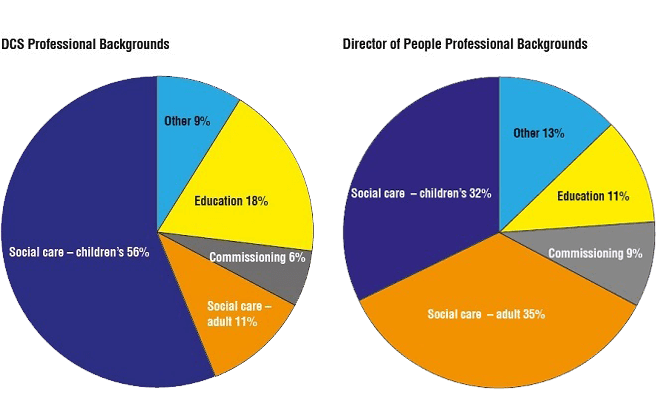Much has been written in the MJ over the years about the challenge of succession planning in a market that continually evolves. Anticipating the skills and experiences needed to build a future-ready workforce is a priority in local government. I was reminded of this having recently spent time at the recent NCAS Conference with members of the Association of Directors of Children’s Services (ADCS) and the Association of Directors of Adult Social Services (ADASS).
This year is the 30th anniversary of the Children’s Act 1989 and I read with interest the Local Government Association’s (LGA) Bright Futures plan and its look-back over the last decade. This publication gives great insight into the challenges faced in the sector and specifically the work delivered by children’s services. With one in 10 children needing some form of extra help, this work is closer to home for many of us than we may realise.
The importance of the role of the director of children’s services (DCS) has never been clearer to me. The numbers alone are eye-opening; a 53% increase in the number of children subject to a child protection plan over the last decade and 75,420 looked-after children in 2018. Added to this surge in numbers is further complexity from the changing age profile make up of looked-after children. When this is measured against a 38% turnover of DCS roles in a 12-month period (April 17 to March 18), it presents a stark predicament for those managing their talent pool. Which leads me to recent conversations with colleagues and clients when we have been preparing for the appointment of new directors, both on an interim and a permanent basis. For most organisations, the need to secure a new DCS is a rare occurrence and the early preparatory work often focuses on the market dynamics and what they might expect to find.
The backdrop to the appointment is varied; there may have been a change of administration following the recent local elections; some may be dealing with the impact of an Ofsted inspection (whether that be a positive or negative outcome); others are facing the imminent retirement of a longstanding and successful incumbent. Early judgements are likely to have been made about the requirements of their new DCS, whether that be a social work qualification, an education specialist or stakeholder management capability based upon local context and recent history.
Given the finite number of sitting directors, one dilemma some organisations will face is that not every search can lead to a fully seasoned DCS shortlist. Outstanding leadership often follows experience, but if a candidate’s experience at this level is, as yet, untested, how do you assess potential and provide the platform by which they can convince a member panel of their readiness? We utilise a depth of data available to us to shape our advice around what is achievable (see top graph). Predicting the future in isolation is almost impossible and we look back across multiple searches and assignments to identify triggers for future trends. We have mapped the current DCS cohort and use this people intelligence to provide an overview to clients of what they might expect.
When we consider local authorities with a standalone DCS, it comes as no surprise that 66% have a professional background in social work. Twenty-two per cent have a background in education, highlighting the move by local authorities to reduce the size of their services in this space. The remainder have backgrounds in NHS; policy; youth; neighbourhoods; communities; finance; libraries or commissioning. If we then move on to look at local authorities with a director of people model, 33% of this group comes from children’s social care and 34% from adult services. Only 11% of this cohort comes from education.

The natural conclusion of this trend will be a severe shortage of directors with a professional background in education as the current cohort move on to other roles or retire. If the role of the local authority in education continues in the current direction, then large gaps will start to appear. A change in policy following the forthcoming General Election could obviously play a major role in the make up of this DCS population. There is still scope for senior leaders to come from ‘non-traditional’ routes though, historically, these have been internal promotions where the successful applicant is known to the senior team and elected members already.
An organisation’s choice of candidate is always going to reflect where they are in terms of their current performance, funding and ambition. Where they want to get to – be that improving attainment in their schools or improving their management of placements and the costs associated with them – must shape their outlook and scope of the role and person requirements. There were many very positive stories shared at #NCASC2019, including innovation funding that has led to initiatives such as the rollout of family safeguarding beyond Hertfordshire and the redesign of Hampshire’s already outstanding service and those local authorities achieving the previously so rare ‘outstanding’ from Ofsted.
For local government to continue to fulfil its statutory responsibilities in this challenging and shifting landscape, the role of the DCS remain crucial in delivering and evolving these services.
Craig Clarke, GatenbySanderson – Executive Director, Leadership & Talent Consultancy
